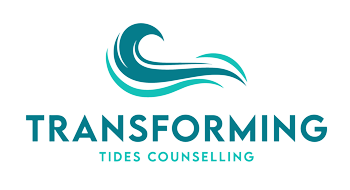Feeling satisfied and like you are making a difference at work can mean everything… until it doesn’t. Burnout is becoming an epidemic and it’s time to protect yourself from its exhaustion.
Facing deep mental and physical exhaustion, losing interest in work and in things that used to matter in your life, avoiding colleagues and reminders of work, becoming unclear on your purpose and feeling unmotivated… it can all form a state of burnout.
What is Burnout?
The World Health Organization, in 2019 listed burnout as an occupational phenomenon in the international Classification of Diseases and defined it as “a syndrome resulting from chronic workplace stress that has not be successfully managed” It involves these three factors:
- Feelings of energy depletion or exhaustion
- Increased mental distance from one’s job or feelings of negativism or cynicism toward one’s job
- Reduced professional efficacy
In other words, burnout is connected to feeling overwhelmed and exhausted from multiple demands that we feel we just can’t meet effectively, and where we no longer enjoy what we are doing and feel disconnected from feeling productive and valued at work. When we experience burnout we tend to stop asking for help and stop trying to make improvements at work because the feeling of hopelessness and powerlessness have set in.
The Impact of Burnout
Burnout is about more than feeling exhausted, overwhelmed and overworked. Burnout can affect physical health and contribute to diseases such as diabetes, heart disease, gastrointestinal issues, insomnia, prolonged fatigue, depression, anxiety and more.
If you find yourself experiencing such a situation as this,
You are not alone!
Research over the state of burnout during the pandemic shows that according to Mental Health Research Canada In 2021, one in three employees reported feeling symptoms of burnout. It’s been shown that women particularly struggled with stress and burnout in 2021 as women make up a large percentage of the health and education sectors while also being in the role of caring for children and families who’s routines were thrown upside down during the pandemic.
It’s important to also point out that Indigenous people and people of colour and Immigrants have shared their experience of burnout, as they tended to be employed in ‘essential positions’ during the pandemic while also facing discrimination in the workplace and in communities.
Tips to avoid burnout before it hits:
- Acknowledge and name the levels of stress you are experiencing, and how they are impacting you. Allow yourself to notice what your body is telling you and where you are starting to not feel like yourself. At least once a week take a minute to listen rather than running on that hamster wheel and avoiding what’s really going on for you. Noticing how you feel and making changes early can build protective factors that protect you from burnout.
- Get clear on what you value most about your work and home life and plan your time around doing what you value the most. For example, if you value being productive then plan your week so you can get some tasks done at home and at work and take time at the end of the week to list all the things you have accomplished so you feel productive. Perhaps you value spending time with people you care about. In this case plan time to connect virtually or in person with people at work you care about and people in your personal life. Connect with someone every week to catch up and share. Have a laugh together. Then, at the end of the week, look back on the conversations you’ve had and consider one thing that you are glad you talked about with the people you’ve connected with. Here are a few questions to help you get clear on what you most value:
- “What am I doing when I feel the most motivated and satisfied?”
- “What lights me up the most?”
- “What would I miss the most if I could no longer do it, or have it in my life?”
- Boost your energy when you notice it’s lagging. Take a moment to pause and notice how your energy feels a couple times during each day. Notice if you are feeling low, tired, dragging…or if you are feeling up, motivated, ready to take on anything. If you notice your energy is low do these things to boost it:
- acknowledge how you are feeling
- take a moment to stand up, move your body by walking around, stretch, step outside if possible for a breath of fresh air,
- get a drink of water,
- Eat a small energizing snack
- shift your focus from whatever you’ve just been doing to thinking about a pleasant memory of something that happened over the last few days or weeks.
- Check in with your expectations of yourself. Are you being realistic about what you can do in the run of a day? Are you pushing yourself to accomplish a mountain of “shoulds” that could be put aside to allow you more flexibility and freedom?
- Bring kindness to yourself to allow time for rest and for activities that bring you joy. Do something each day, even for only a few minutes, that lightens the moment and brings a sense of joy.
- Seek out process changes at work that can improve workflow and better the work culture so all workers feel valued and respected for what they do. Take advantage of workplace wellness programs and change initiatives. Advocate for yourself.
- Get out in nature and soak up time on a wooded trail, have a walk in a park, meet a friend for a bike ride, have a coffee in a local garden. Time spent in nature has been shown to improve general wellness and sense of contentment.
If you find yourself struggling and it seems like your symptoms aren’t budging after trying these tips there may be more going on. Reach out for more mental health support here.
Reference Links: https://www.mhrc.ca/burnout-report
The team at Transforming Tides Counselling offers a free 20-minute phone consultation to hear your needs and answer your questions. It’s important to feel comfortable with your therapist. Let’s find out if we’re a good fit. Book your free phone consultation here.




